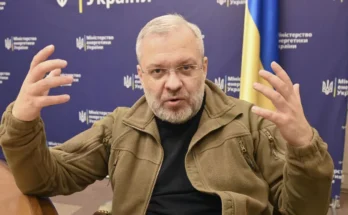I walked around, like a vulgar fan, listening and evaluating LuxRosalía’s latest album, which took three years to reach our ears, when, with almost no time to enjoy it, a controversy broke out, provincial, but still controversial.
The fact is that connoisseurs will appreciate its importance; the album offers, among its various collaborations, a notable presence of the Escolanía de Montserrat in many of the album’s songs. It seems that, immersed in a wave of religious mysticism, Rosalía wanted to count on them. “We accept this project because Rosalía, as she herself has already explained, talks about the experience of God. The permanent discernment of God is something very Benedictine and she also does it through music,” they assured from the choir. Seen from the outside, it would seem that the topic is even reasonable: using a group of sacred music singers to collaborate on an album with a clear mystical spirit.
Well, bad. Come on, not everyone liked this collaboration. Almost the same day the album came out, da Rac1 or Catalunya Ràdio, as well as several influencers The pro-independence pro-nationalists shouted: how can Rosalía be allowed to have a symbol like the Escolanía de Montserrat to collaborate on her album… in Spanish! And how, the Escolanía, spiritual symbol of Catalonia, agrees to collaborate with the “Castilian singer” artist! Because, friends, the problem was this, that the Escolanía agreed to sing in Spanish, and this is a “cultural betrayal”.
Needless to say, they didn’t find it relevant that, on other occasions, the Escolanía had sung in Latin, English or German, the problem was that they did it in Spanish.
I was amused by the twist in the script, I hadn’t even thought that nonsense could get to that point, for several reasons. The first, because it seemed like nonsense to me similar to when today’s parents, I imagine, launched a campaign against the rock group Sopa de Cabra, who dared to sing in Spanish, calling them traitors and inviting them to go to… Spain. The leader of the group, Gerard Quintana, already in the 1990s had to come out of the closet claiming “the same rights as a Spanish or foreign artist, for whom no one says in which language he must express his art” and complaining: “Until this is clear, we must continue to think that something is not right in our land, and that we still need a bit of maturity. Maturity which, almost thirty years later, it seems we have not acquired.”
And it also made me laugh because, it never hurts to know the story, none of these hyperventilating people care that on the mountain of Montserrat there is a funeral complex dedicated to the Tercio de Requetés de Nuestra Señora de Montserrat, the military group that supported the rebels and was created after the failure of the ’36 coup in Catalonia. Just as the first conviction for pedophilia against a monk from Montserrat did not cause a sensation a year ago.
It sounds strange, but one has the feeling that, as long as one speaks Catalan, one can be a pedophile and even a requeté, without this leading to condemnation from the circles of that Catalan independence movement which, fortunately, is already a political corpse.



